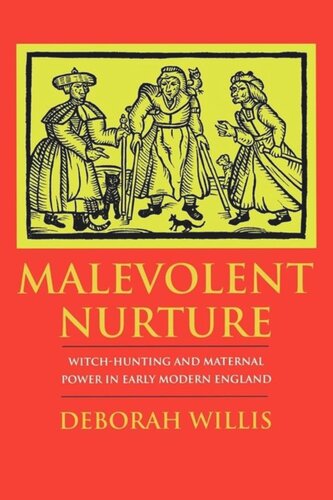

Most ebook files are in PDF format, so you can easily read them using various software such as Foxit Reader or directly on the Google Chrome browser.
Some ebook files are released by publishers in other formats such as .awz, .mobi, .epub, .fb2, etc. You may need to install specific software to read these formats on mobile/PC, such as Calibre.
Please read the tutorial at this link: https://ebookbell.com/faq
We offer FREE conversion to the popular formats you request; however, this may take some time. Therefore, right after payment, please email us, and we will try to provide the service as quickly as possible.
For some exceptional file formats or broken links (if any), please refrain from opening any disputes. Instead, email us first, and we will try to assist within a maximum of 6 hours.
EbookBell Team

4.4
22 reviewsWhy were women far more likely than men to be executed for witchcraft in the early modern period? Questioning approaches that focus narrowly on the male role in witch-hunting in England and Scotland, Deborah Willis examines the fact that women were also frequently the accusers.Willis draws on the strengths of feminist, new historicist, and psychoanalytic criticism and on such primary sources as legal documents, pamphlet literature, religious tracts, and stage plays. Both the witch and her female accuser, Willis concludes, were engaged in a complex, intricate struggle for survival and empowerment in a patriarchal culture, and they stood in uneasy relation to definitions of female identity that rewarded nurturing behavior.Malevolent Nurture disentangles popular images of the witch from those endorsed by male elites. Among villagers, the witch was most typically imagined as a malevolent mother, while elites preferred to view her as a betraying servant of Satan. Analyzing King James VI and I's involvement in the North Berwick witchcraft trials, Willis shows how his elite atittudes were nevertheless influenced by his relationships with his brith mother, Mary Queen of Scots, and another maternal figure, Queen Elizabeth I.Willis also shows that Shakespeare, in Richard III, Macbeth, and Henry VI, and other middle-class playwrights incorporated the beliefs of the ruling class and villagers alike in their representations of witches.